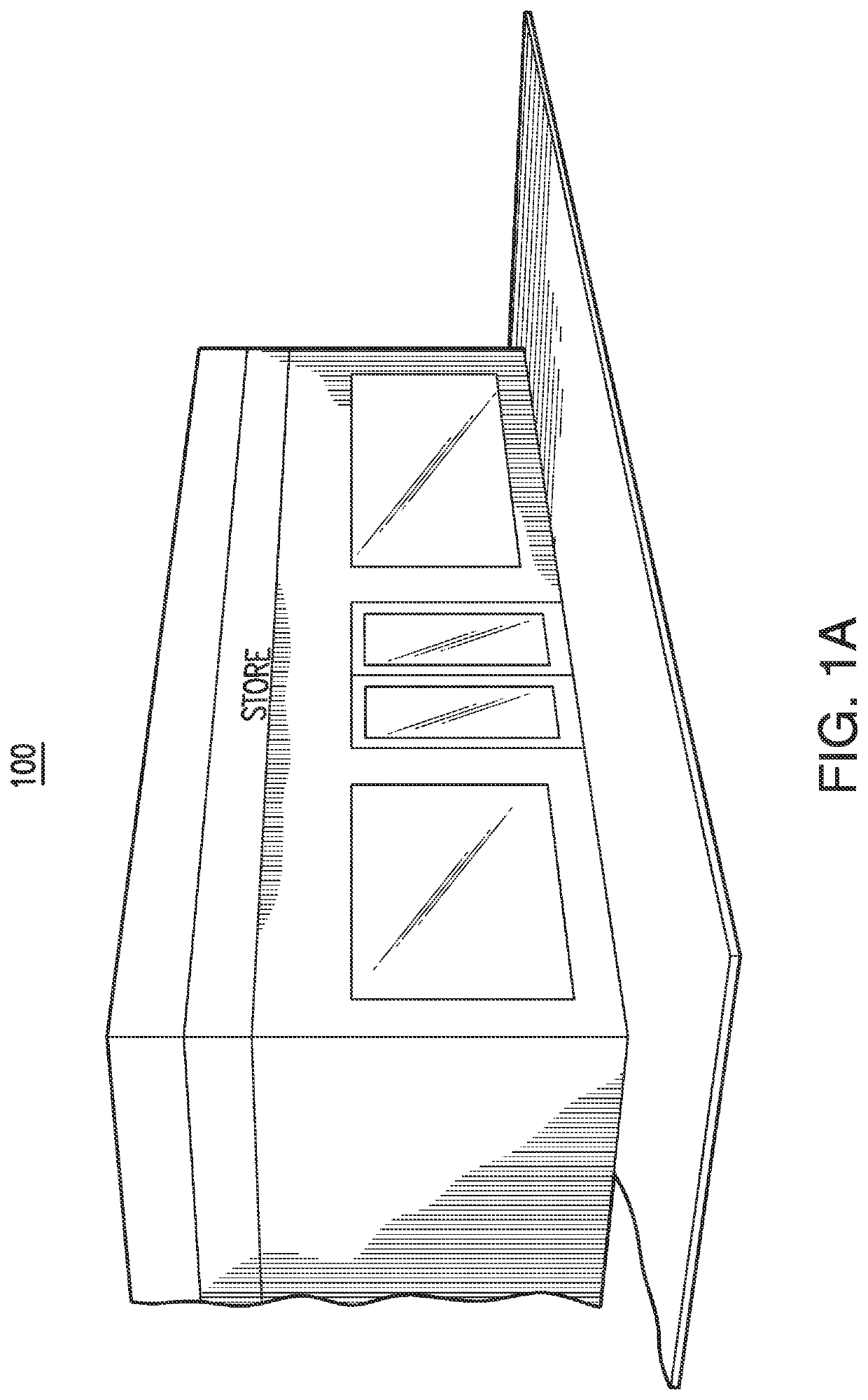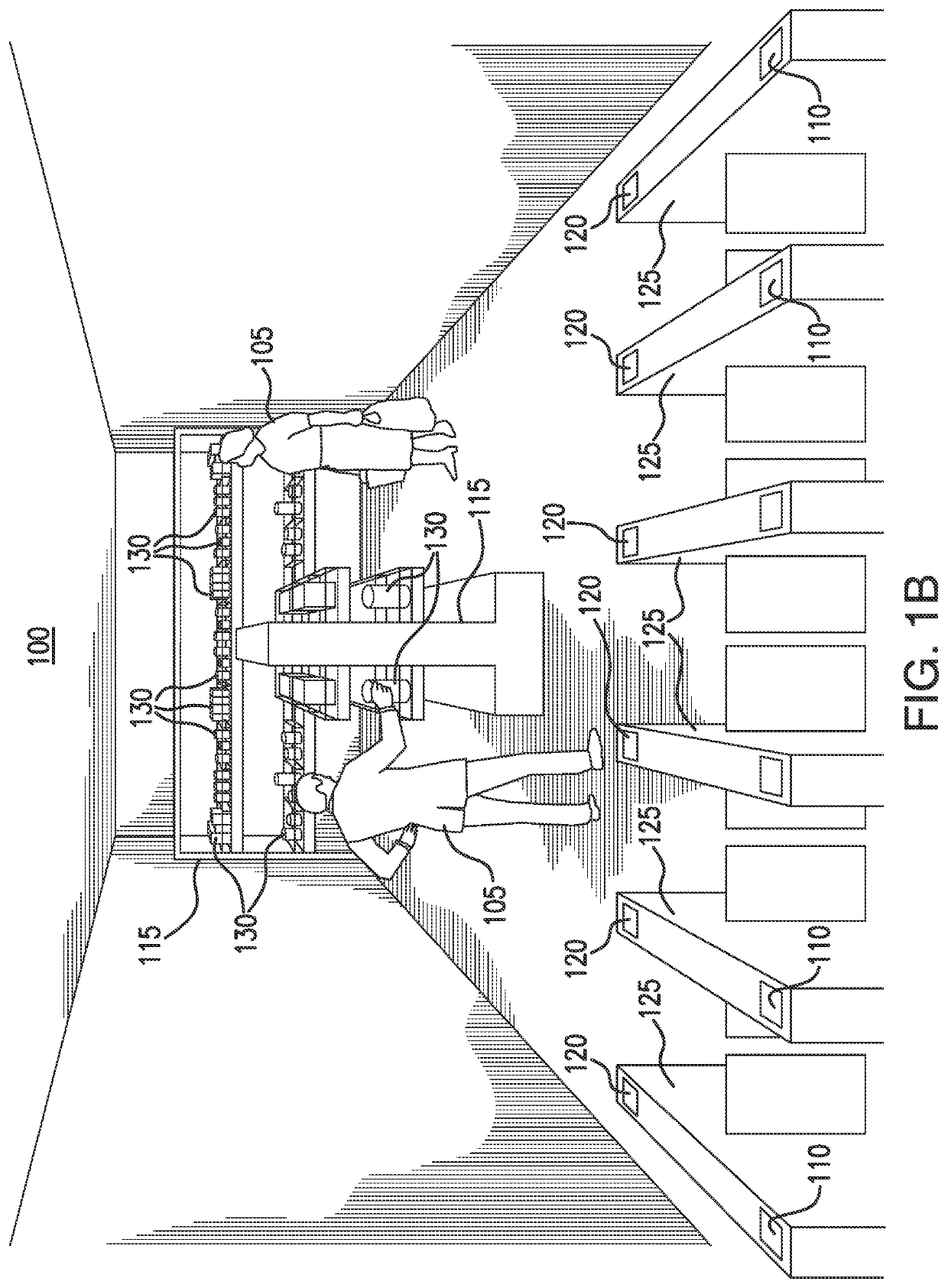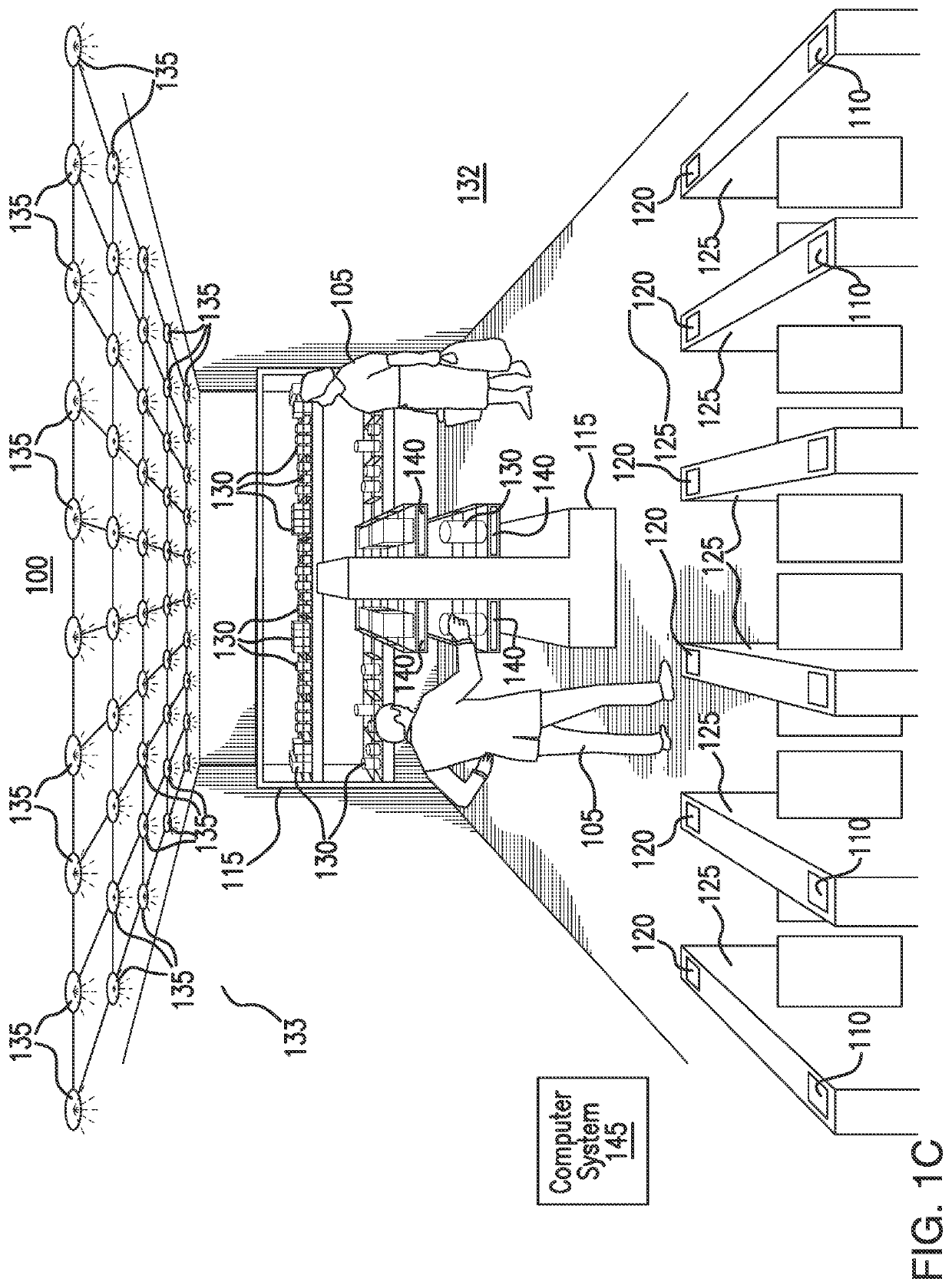Scalable position tracking system for tracking position in large spaces
a position tracking and large space technology, applied in the field of scalable position tracking system for tracking position in large space, can solve the problems of limiting synchronization problems, and limit the number of sensors that can be added before the computing capabilities of the computer are reached
- Summary
- Abstract
- Description
- Claims
- Application Information
AI Technical Summary
Benefits of technology
Problems solved by technology
Method used
Image
Examples
Embodiment Construction
[0042]Embodiments of the present disclosure and its advantages are best understood by referring to FIGS. 1A through 7 of the drawings, like numerals being used for like and corresponding parts of the various drawings. Additional information is disclosed in U.S. patent application Ser. No. 16 / 664,470 entitled, “Customer-Based Video Feed” (attorney docket no. 090278.0187) and U.S. patent application Ser. No. 16 / 663,710 entitled, “Topview Object Tracking Using a Sensor Array” (attorney docket no. 090278.0180) which are both hereby incorporated by reference herein as if reproduced in their entirety.
[0043]Position tracking systems are used to track the physical positions of people and / or objects in a physical space (e.g., a store). These systems typically use a sensor (e.g., a camera) to detect the presence of a person and / or object and a computer to determine the physical position of the person and / or object based on signals from the sensor. In a store setting, other types of sensors ca...
PUM
 Login to View More
Login to View More Abstract
Description
Claims
Application Information
 Login to View More
Login to View More - R&D
- Intellectual Property
- Life Sciences
- Materials
- Tech Scout
- Unparalleled Data Quality
- Higher Quality Content
- 60% Fewer Hallucinations
Browse by: Latest US Patents, China's latest patents, Technical Efficacy Thesaurus, Application Domain, Technology Topic, Popular Technical Reports.
© 2025 PatSnap. All rights reserved.Legal|Privacy policy|Modern Slavery Act Transparency Statement|Sitemap|About US| Contact US: help@patsnap.com



